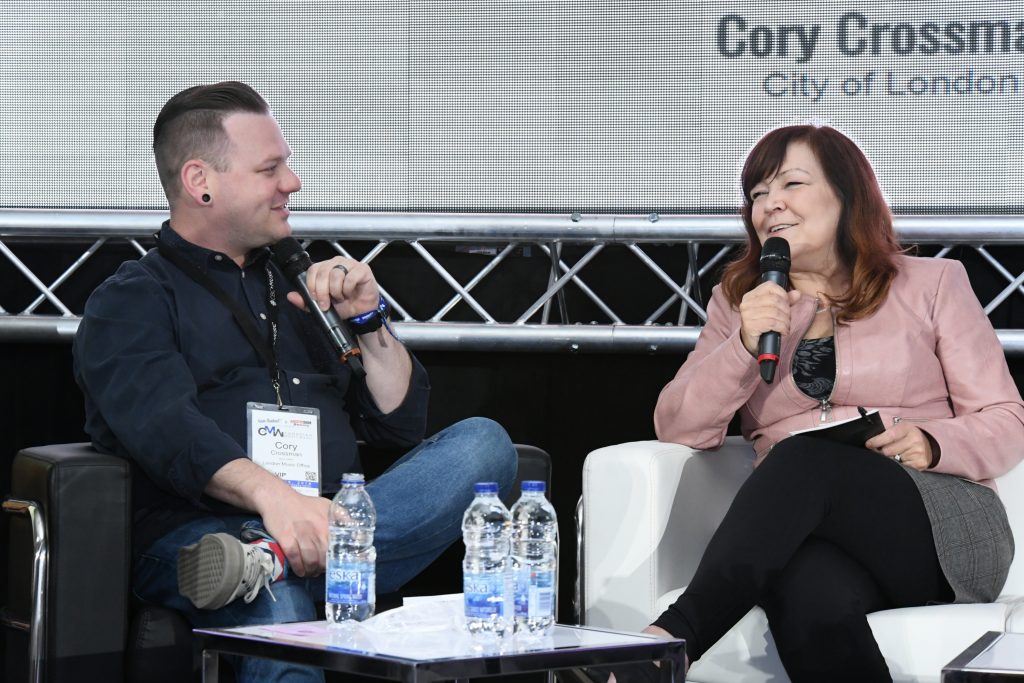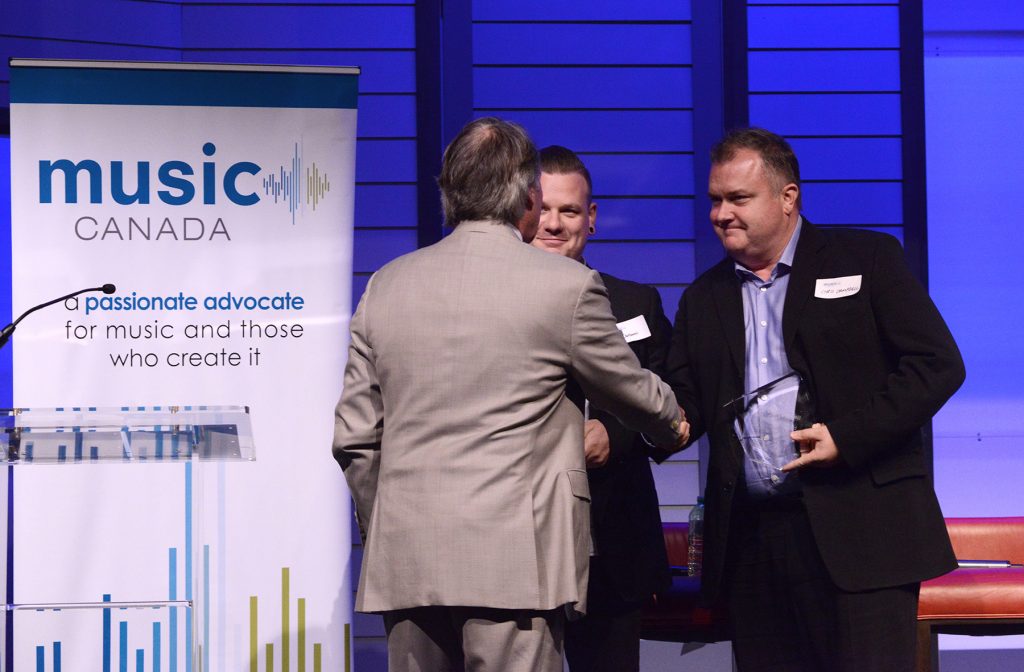March 12th, 2021, Ottawa: The Canadian Live Music Association (CLMA), and Music Canada welcome support received from Lisa MacLeod, Minister of Heritage, Sport, Tourism and Culture Industries with today’s announcement of funding for the Unison Fund, Canada’s music industry charity and the CLMA, in support of the broader music community.
$2M to the Unison Fund
Funding to Unison will provide much-needed emergency assistance to artists, creators, and industry from local communities across Ontario. Artists and the broader live music ecology have been deeply impacted, and this vital support to Unison comes at a time when it is desperately needed.
“We sincerely thank Minister MacLeod and the Government of Ontario for their support and acknowledgement of the Unison Fund and the crucial and very necessary role the organization plays in providing critical assistance to vulnerable members of our music community in times of crisis. In March 2020, Unison, began the largest relief effort in our history and while we are no stranger to helping people during difficult times, truly nothing has reached the scope of the last twelve months. The investment will go a long way toward directly supporting those in the Ontario music community with the greatest need, as the urgency for assistance remains high,” said Amanda Power, Executive Director, Unison Fund.
“As a provider of both emergency support and 24/7 free mental health counselling for the entire music industry, Unison has had and will continue to have a crucial role in making sure no one in our community falls through the cracks,” said Miranda Mulholland, artist and chair of Music Canada’s Advisory Council.
$500k to the CLMA for Province-Wide Music Cities Framework Development
The CLMA has been working tirelessly since the beginning of the crisis to save cultural infrastructure and protect jobs, seeking ways for the industry at large to not only recover from the devastating blow COVID has dealt, but to ultimately return, bigger and stronger than ever. Many continue to face a staggering 92% average revenue loss within the industry, and 64% say they are at risk of permanent closure. Today’s announcement creates the opportunity for the association to take additional action for, and on behalf of, live music’s collective future:
“It has been a year, and it isn’t over, something our Minister recognizes. Minister MacLeod also understands that supporting the business of live music is essential so our industry can get back to doing what they do best: creating exponential economic, social and cultural impact for artists, communities and tourism. We were just beginning to harness the true power of live music when COVID struck,” said Erin Benjamin, President & CEO of the CLMA. “With this support we will be able to take all that we have learned and continue to entrench the value our members bring to cities, towns and neighbourhoods across the province through the Music Cities lens.”
Music Canada’s ‘Music Cities’ framework will provide a proven model to help support communities across the province better leverage their own local live music assets. Designed with world-renowned research that identifies key strategies large and small cities have used to grow their music economies, plans will be implemented to guide the development of local policy and bylaws, and community support that focuses on artists, venues and festivals, the wider supply chain and tourism.
“A strong, healthy music industry can generate diverse benefits for a community including economic growth, job creation, increased spending, greater tax revenues, and cultural health. Our Music Cities framework has helped communities achieve this success,” said Patrick Rogers, CEO of Music Canada. “Recent research conducted by Music Canada shows that Canadians view live music venues as economic and cultural lifelines within their communities, and they understand that the pandemic will have severe impacts on the long-term viability of the live music sector which affects Canadian culture in the long run. This announcement of support from the provincial government is timely, and necessary support.”
Aimed at bridging the gap to bring the live music sector out of the pandemic, CLMA and Music Canada will seek to explore and recommend initiatives for towns and cities across the province along several categories. These include:
- Advancing policies that support music and musicians,
- Expanding music offices and music Advisory Boards across the province,
- Developing initiatives that engage a broader community,
- Furthering programs that provide access to music spaces,
- Developing audience retention strategies for when it is safe to return to venues, festivals and music spaces,
- Nurturing and leveraging strategic relationships with the tourism, business and other key sectors to align and advance rebuild and recovery efforts.
“As our experience in London has demonstrated, music can bring enormous value to the economic and social fabric of a community. The Ontario Government’s financial commitment to live music will create opportunities for artists, reinvigorate venues, delight audiences and will allow us all to revive live,” said Cory Crossman, Music Industry Development Officer, London Music Office.
Additionally, the CLMA and Music Canada will work with a range of organizations within the music community to ensure that our shared commitments to equity, diversity and inclusion remain at the forefront.
For more information on the announcement from Lisa MacLeod, Minister of Heritage, Sport, Tourism and Culture Industries please click here.
-30-
About Unison Benevolent Fund
Unison Fund, Canada’s music industry charity, provides counselling and emergency relief services to the Canadian music community in times of hardship or difficulties. For over a decade, Unison has been committed to helping producers, engineers, singers/songwriters, musicians, production crews, and thousands more through our financial assistance and counselling and health solutions programs. For more information, please visit: www.unisonfund.ca. If you can, PLEASE make a donation by visiting www.unisonfund.ca or text the word ‘UNISON’ to 45678 and follow the prompts to donate $10, $20, or $25. Every donation counts. Every donation helps. Let’s keep Canadian music and entertainment ALIVE.
About The Canadian Live Music Association
The Canadian Live Music Association (CLMA) is the voice of Canada’s live music industry. Established in response to an identified need in the live music industry, the CLMA represents venues, clubs, concert promoters, festivals, talent agencies, arenas, performing arts centres, industry associations and networks, as well as suppliers to the sector. Its mission is to entrench the economic, social and cultural value of live music – creating the conditions for concerts to thrive, from coast to coast to coast.
About Music Canada
Music Canada is a non-profit trade organization that represents the major record companies in Canada: Sony Music Entertainment Canada, Universal Music Canada and Warner Music Canada. Music Canada also works with some of the leading independent record labels and distributors, recording studios, live music venues, concert promoters, managers and artists in the promotion and development of the music cluster.
MEDIA CONTACTS:
Charlotte Thompson, Red Umbrella P.R.
Unison Fund
charlotte@redumbrellapr.com
Erin Benjamin
Canadian Live Music Association (CLMA)
ebenjamin@canadianlivemusic.ca
(613) 769-5559
Erica Meekes, Music Canada
emeekes@musiccanada.com / (416) 462-1485










Music Canada